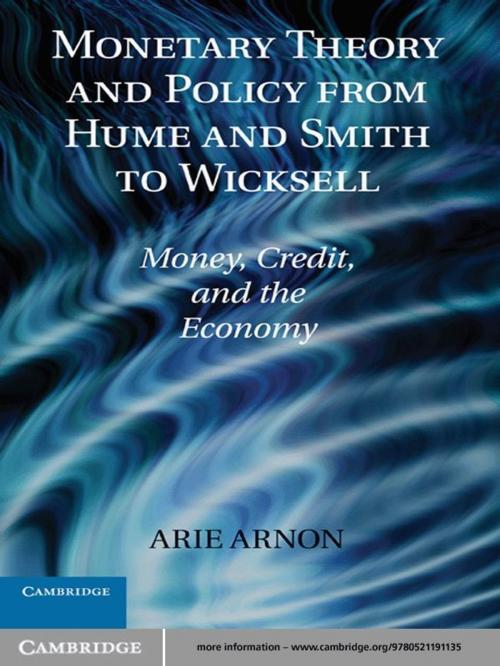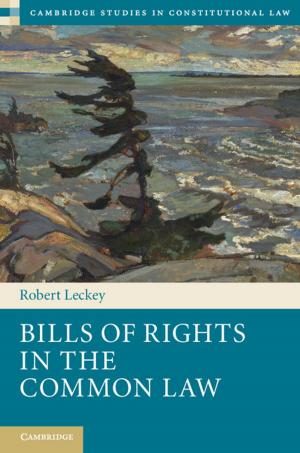Monetary Theory and Policy from Hume and Smith to Wicksell
Money, Credit, and the Economy
Business & Finance, Economics, Macroeconomics, Economic History| Author: | Arie Arnon | ISBN: | 9780511852718 |
| Publisher: | Cambridge University Press | Publication: | November 22, 2010 |
| Imprint: | Cambridge University Press | Language: | English |
| Author: | Arie Arnon |
| ISBN: | 9780511852718 |
| Publisher: | Cambridge University Press |
| Publication: | November 22, 2010 |
| Imprint: | Cambridge University Press |
| Language: | English |
This book provides a comprehensive survey of the major developments in monetary theory and policy from David Hume and Adam Smith to Walter Bagehot and Knut Wicksell. In particular, it seeks to explain why it took so long for a theory of central banking to penetrate mainstream thought. The book investigates how major monetary theorists understood the roles of the invisible and visible hands in money, credit and banking; what they thought about rules and discretion and the role played by commodity-money in their conceptualizations; whether or not they distinguished between the two different roles carried out via the financial system - making payments efficiently within the exchange process and facilitating intermediation in the capital market; how they perceived the influence of the monetary system on macroeconomic aggregates such as the price level, output and accumulation of wealth; and finally, what they thought about monetary policy.
This book provides a comprehensive survey of the major developments in monetary theory and policy from David Hume and Adam Smith to Walter Bagehot and Knut Wicksell. In particular, it seeks to explain why it took so long for a theory of central banking to penetrate mainstream thought. The book investigates how major monetary theorists understood the roles of the invisible and visible hands in money, credit and banking; what they thought about rules and discretion and the role played by commodity-money in their conceptualizations; whether or not they distinguished between the two different roles carried out via the financial system - making payments efficiently within the exchange process and facilitating intermediation in the capital market; how they perceived the influence of the monetary system on macroeconomic aggregates such as the price level, output and accumulation of wealth; and finally, what they thought about monetary policy.















